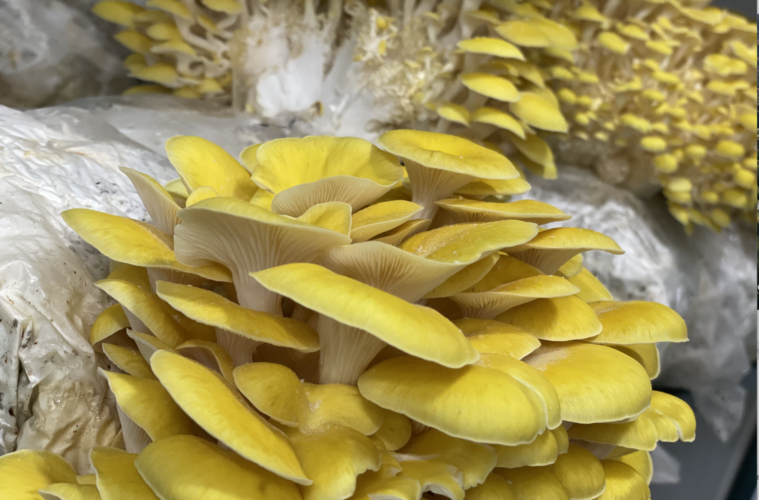Updated
It only has a population of about 200, but the city of Vernon has a long history that dates back more than 100 years. Known mainly for its factories and as an industrial hub since 1919, it’s had its share of political corruption charges and has been the longtime owner of major meat packing plants like Farmer John which took their own hits during the pandemic. Its biggest business is food manufacturing.
If you maneuver your way through the potholes and streets scarred by the thousands of big rigs that pass through daily, you’ll find the Smallhold Mushroom Farm under the City of Vernon Water Tower. The Erewhon distribution center is just across the railroad tracks.
Urban mushroom farmers Smallhold, pioneers in indoor agriculture technology, have opened the first Certified Organic Mushroom Farm in Los Angeles County in a 34,000 square foot facility in Vernon. They have made their locally farmed specialty mushrooms like lion’s mane, blue and yellow oyster, trumpet and shitake – normally only found at farmers markets – available in grocery stores like Whole Foods, Erewhon and Lassens and can be ordered online at Good Eggs and Imperfect Foods.
Gjelina restaurant in Venice receives about 30 pounds of oyster mushrooms from Smallhold every two days for the mushroom toast, its most popular dish.
“They grow really incredible consistent oyster mushrooms,” chef Rafa Martinez tells L.A. Weekly. “When you grill them they are not over-loaded with water, and are not woody either, which allows for a perfect tenderness. They really crisp perfectly on the outside, while keeping a tender inside. And it’s consistent.”
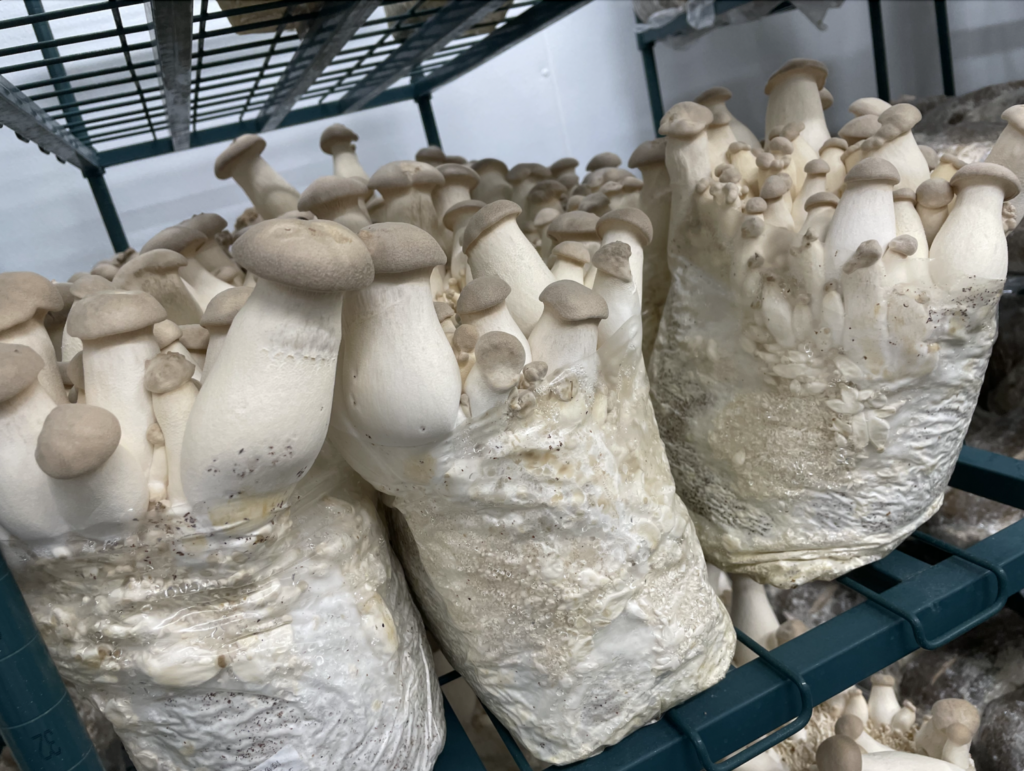
Trumpet mushrooms (Michele Stueven)
“You don’t often see them in the stores because people don’t know what to do with them,” says co-founder Andrew Carter, who started growing mushrooms in his basement. “We’d like to change that. They really don’t benefit from long distances. Forget about the carbon footprint for a minute, just shipping them from far away, they get damaged and have a short shelf life, so you have to ship them in very unsustainable material. All the mushrooms you find in the grocery store use tons of plastic or styrofoam so they get sweaty and slimy from bacterial infections. We put them in compostable clamshell cardboard containers, so if you remove the little window it’s home compostable. It doesn’t have to go to some crazy recycling plant. You can just tear it up and put it in your yard.”
Originally from Los Angeles, Carter is an indoor agriculturist and vertical farming expert, having spent time working for Tree People and later started growing mushrooms in shipping containers back east. Smallhold also has farms in New York and Texas.
Walking into the 60-degree light-controlled industrial farm pods filled with an earthy aroma is like stepping from the 7th Street Bridge into a Grimm’s fairy tale. Bags of sawdust that were originally a byproduct of the timber industry headed for landfills are inoculated with mycelium which after about three or four weeks completely envelops the sawdust and is ready to fruit. The bags are exposed to specific light and temperature conditions and start to sprout up and produce mushrooms in two to three days. Smallhold grows about 15 different varieties of digester mushrooms.
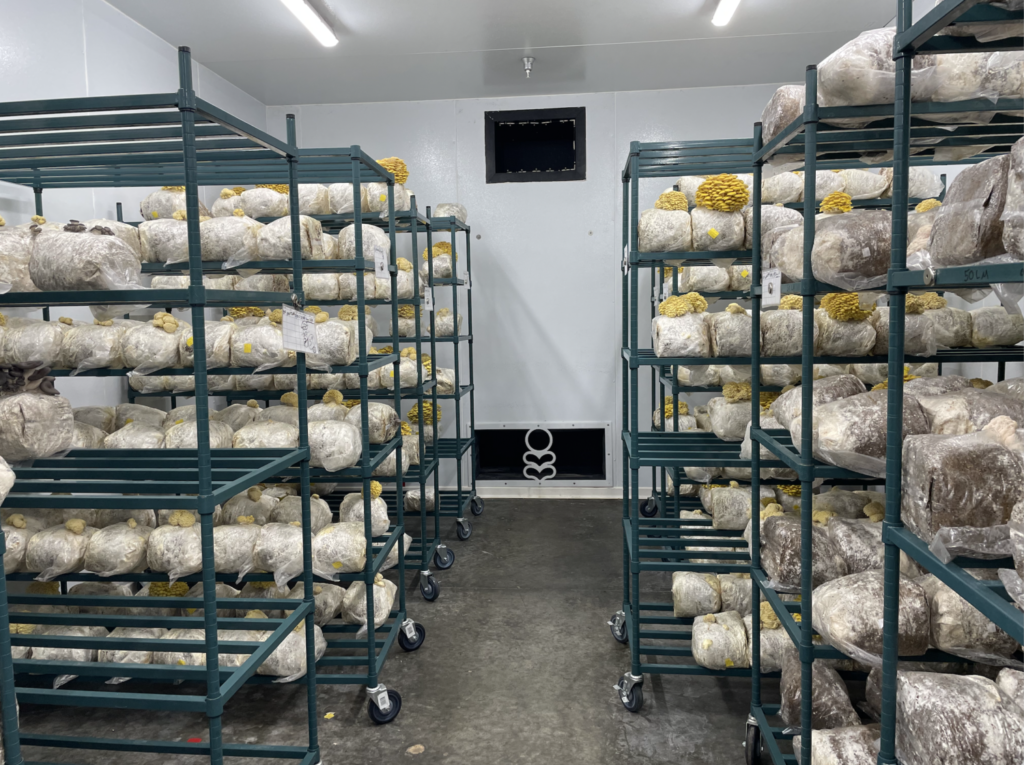
Smallhold Mushroom Farm (Michele Stueven)
“Funghi have their own way of doing things, it’s not like anything else,” says Carter. “As humans, we’re always trying to compare them with things that we’re used to, but they are very different. The mycelium is a living thing and it releases enzymes like your stomach would, so it’s digesting the sawdust and uses that to create its energy. We don’t have to use fertilizers. We use waste as food for these things. Our carbon and water footprints are extremely low. There is no food that uses less water, it’s a very sustainable product and we’ve got a 30% smaller carbon footprint than typical mushroom farming.”
Unlike the work condition complaints that plagued Farmer John’s during the pandemic, Smallhold is determined to pay workers a living wage and thinks planting roots downtown will change the face of the city’s longtime industry.
“Vernon has a lot of different history including industrial waste and other issues that have taken place here,” says Carter. “Bringing an operation like Smallhold into the neighborhood, we want to help the environment around us. I think it’s the best place we could possibly be doing this.”
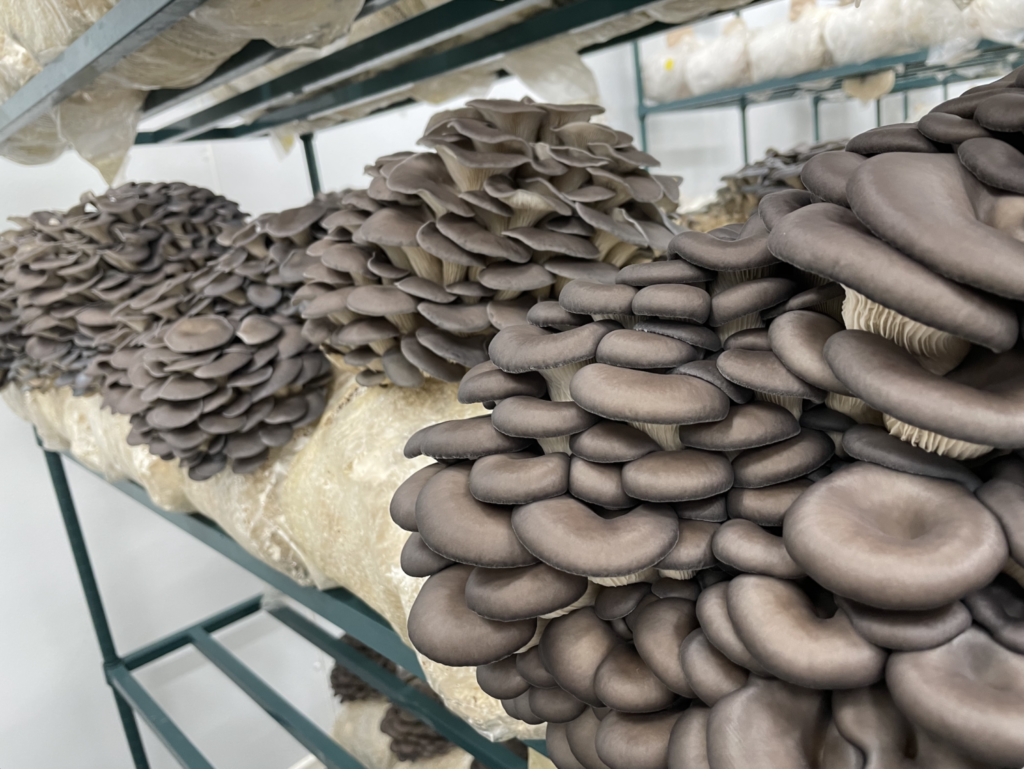
Blue oyster mushrooms (Michele Stueven)
Don’t know what to do with blue oyster mushrooms?
Carter says roasting is the best. Stud a few whole clusters of oyster mushrooms with slivers of garlic dusted with chipotle powder or smoked paprika and fresh thyme sprigs. Rest them on top of sliced onions in a cast iron skillet or roasting pan, drizzle with olive oil and sprinkle with salt and pepper. Roast at 400 for about 45 minutes, then crank up to broil for five minutes. The urban farmer says don’t be afraid of overcooking mushrooms. Garnish with fresh corn and pickled radishes and serve with tostadas or tortillas.
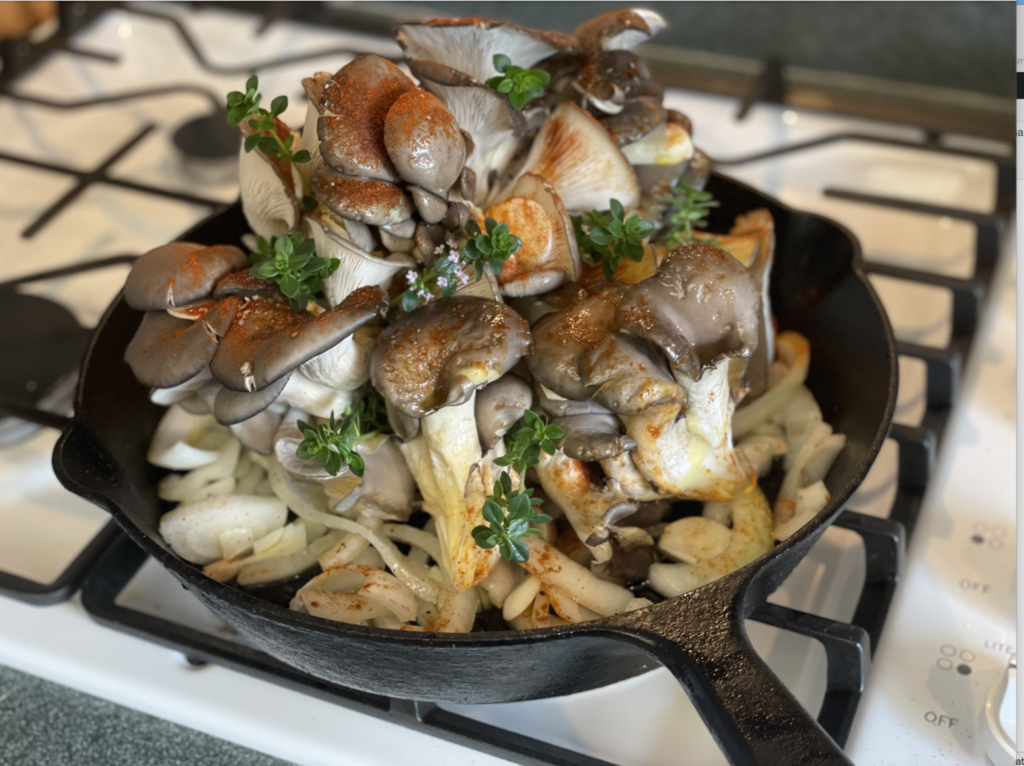
Roasted blue oyster mushrooms (Michele Stueven)
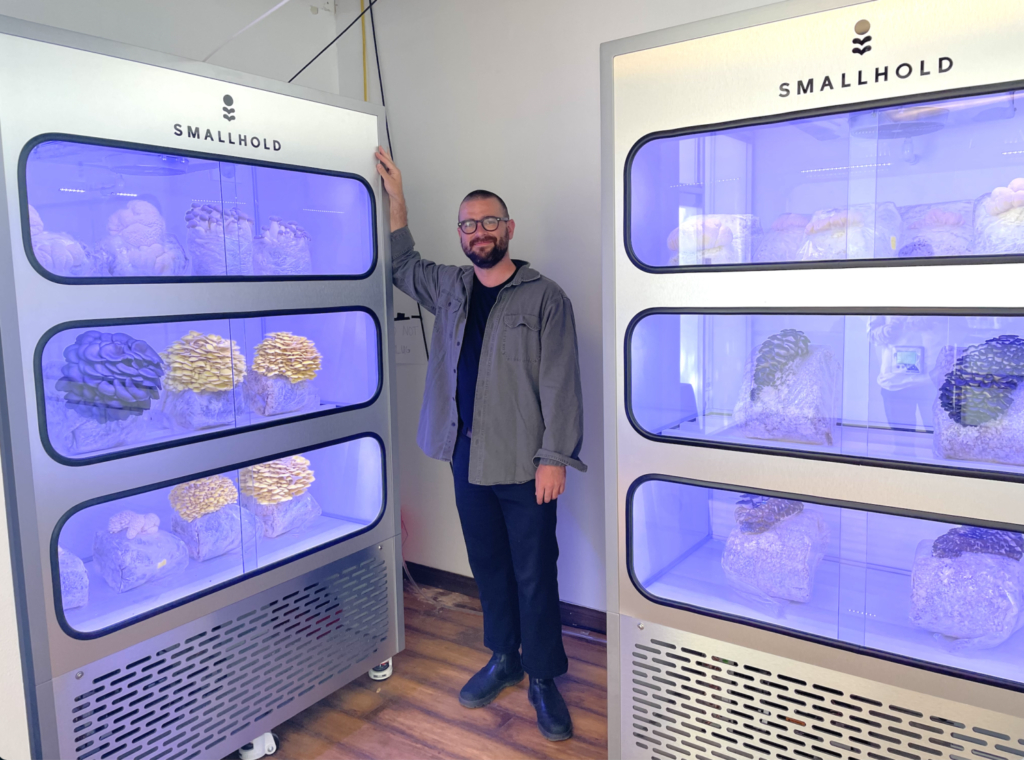
Smallhold Mushroom Farm co-founder Andrew Carter (Michele Stueven)
Advertising disclosure: We may receive compensation for some of the links in our stories. Thank you for supporting LA Weekly and our advertisers.

